For Mexican chef Elena Reygadas, the journey to gastronomic success involved a lot of soul searching, hard lessons and the tireless quest for balance, both in her cooking and personal life. As she is named The World’s Best Female Chef 2023, the chef-owner of Rosetta in Mexico City reflects on her life story and reveals why she wants to share the spotlight with as many women as possible
It took Elena Reygadas a long time to become comfortable with being the centre of attention. The soft-spoken, curly-haired 46-year-old mother of two clearly does not match the idea of the hyper-intense, abrasive, obsessive chef that modern culture has developed a fascination for, from The Bear to Boiling Point and The Menu. Yet, while being at the opposite end of the spectrum, Reygadas remains a force to be reckoned with.
One of the key figures in the contemporary Mexican food scene, she divides her time between the kitchens of her five restaurants in Mexico City, ranging from a refined spot that people travel from all over the world to visit (Rosetta) to several casual concepts much loved by local diners (Lardo, Café Nin and Bella Aurora), as well as a bakery that has achieved iconic status of its own (La Panadería de Rosetta). But for most of her life, Reygadas struggled to step into her role as a leader.
“I didn’t realise – or maybe I didn’t want to see it, or I was afraid to understand it – that there are many young girls out there who see me as a reference,” begins the chef. “At some point, I had to embrace the person and the figure that I have become, because I don’t really have a ‘protagonist personality’, but I felt that it was a responsibility. If I didn’t do it, it would have been selfish of me.”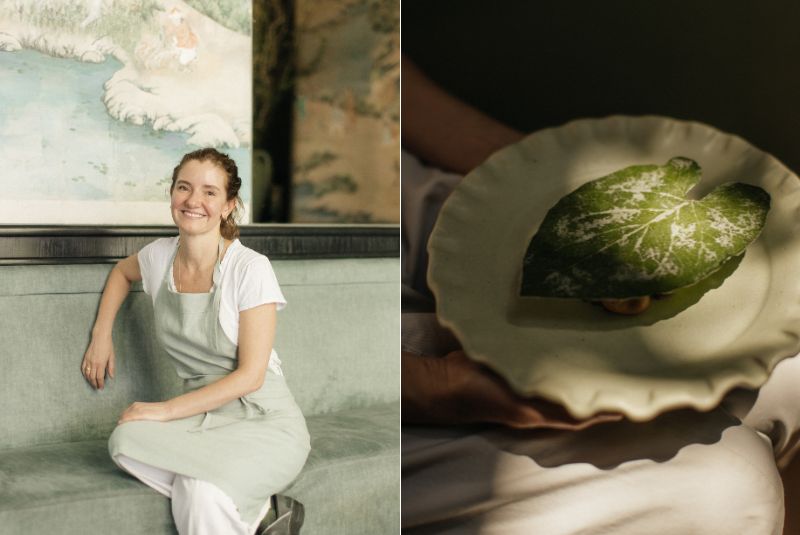
Rosetta’s cuisine is a display of flavours that connects with the earth and Mexican ingredients (image: Maureen Evans)
The topic is one of relevance because Reygadas is now in possession of one of the culinary world’s top accolades: the title of The World’s Best Female Chef, previously held by such gastronomic powers as Dominique Crenn and Ana Roš, and voted by more than 1,000 experts across the world. In June, she will stand on stage at the impressive City of Arts and Sciences complex in Valencia, Spain, to receive her trophy in front of other recognisable figures in the global hospitality sector and the industry’s most influential media – and she is determined to use the platform she has been given for the benefit of women at all levels of the food production chain.
This isn’t Reygadas’ first rodeo: in 2014, she was already voted as Latin America’s Best Female Chef. But since that time, she reflects, a lot has changed. “As the years have gone by, I have developed more maturity, both as a person and as a cook,” she shares. “I understand now that restaurants have a lot of power. I want to be very aware of what I cook and who I buy from, I want everything to be delicious, I want my place to be very nice and people to feel welcome – but what else can I do with the influential personality I have become?”
The power that the Mexican chef is referring to takes the shape of cultural authority: the ability to influence the conversations that are taking place globally not only around gastronomy, but also around society, the environment and culture. Restaurants, she says, should not only be places of pleasure, but also places where ideas and deeper reflections are shared.
Reygadas lives and breathes this philosophy. One of her most recent projects is the publication of a series of notebooks – cuadernos as she calls them in Spanish – designed to bring diners closer to a deeper understanding of gastronomy.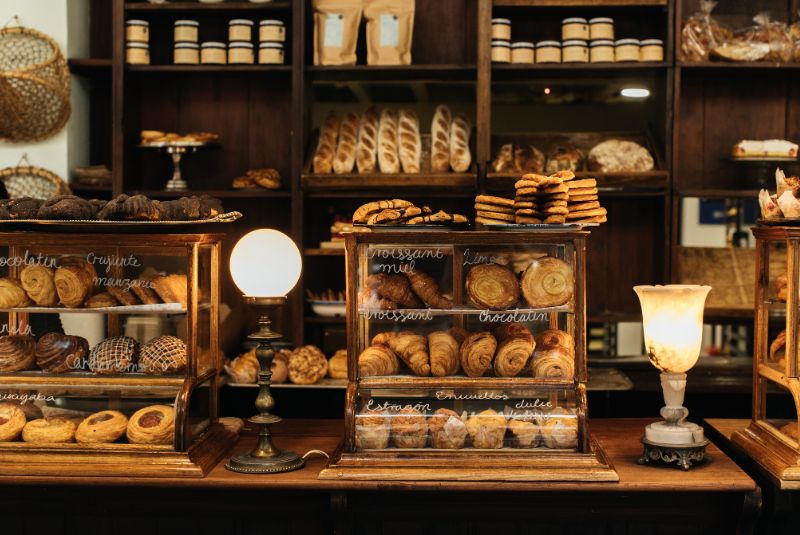
Panadería Rosetta offers more than 47 different savoury and sweet bakes (image: Maureen Evans)
“In a world like ours – devastated by climate change, social inequality, systemic violence, sexism, racism, and the degradation of political life, to mention just a few of many ills – a restaurant should provide a platform for reflection and positive contributions to society,” states the introduction to the cuadernos. In each of them, Reygadas selects extracts from academic textbooks or other research works, presenting them in an accessible format alongside background information and her own reflections.
They tackle topics as varied as the influence of neoliberalism on the modern diet, the role the milpa farming system plays in Mexico, or the impact of national food policies on the country’s society and culture. They offer an unparalleled window into the mind of the chef – looking beyond ingredients, cooking techniques and the practicalities of the restaurant business to view gastronomy as the place of convergence of biological, social, economic, political and cultural forces.
The idea is that people who eat at Rosetta can also pick up one of these texts; Reygadas hopes they will become conversation-starters to generate reflection and awareness in the dining public. “I don’t want to educate people,” she stresses, “but I do want to share what I think is important. Chefs are ultimately the bridge with the diners, so it’s up to us. The restaurant has become a strong platform for communication and the transmission of ideas, so it should be a bit like a think tank from which these conversations emerge.”
The causes close to the chef’s heart come through not only in her written works, but also in her restaurant’s menu. These days, Reygadas finds herself spending a lot of time reflecting on sustainability and climate change. In a country as carnivorous as Mexico, the menu at Rosetta features more and more vegetable-forward dishes that change through the year in response to the cycles of nature.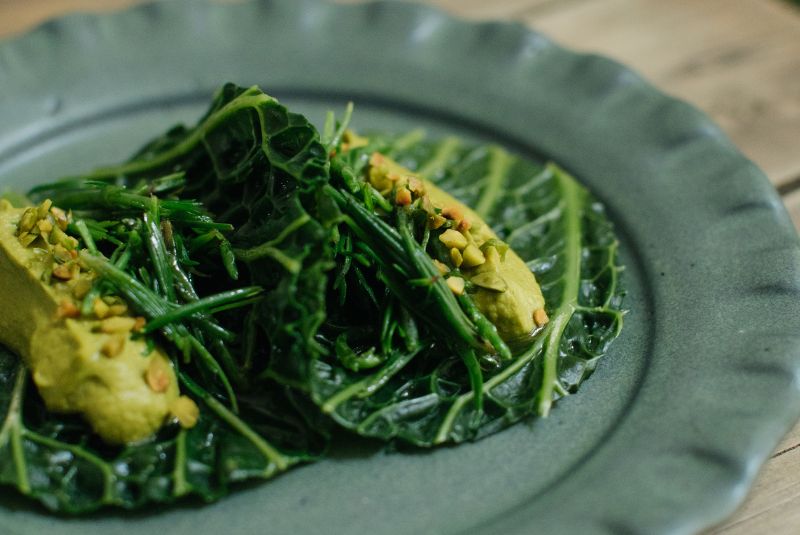
Savoy cabbage taco, with pistachio pipián and romeritos (image: Maureen Evans)
Take, for instance, the chef’s signature dish. Reygadas’ interpretation of the ubiquitous Mexican taco features not a corn tortilla, but instead savoy cabbage leaves. The traditional sauce, pipián, here is made from pistachio instead of pumpkin seeds, and is accompanied not by meat but by romeritos, an herb native to Mexico and often associated with Christmas festivities. As well as exemplifying her vegetable-forward philosophy, the chef wants to be a spokesperson for the country’s biodiversity, its millennia-old food traditions – pipián is said to have origins in Aztec and Mayan cuisines – and the deep connection food shares with culture and festivities.
Rosetta’s food wasn’t always as Mexican as it is today. Having spent her formative years working at Locanda Locatelli, a seminal Italian restaurant in London, Reygadas had a penchant for fresh pastas and international flavours. As her confidence as a chef grew, she also became more conscious of her own Mexicanness, feeling a strong desire to convey it through her gastronomic art.
Her father had always encouraged her to taste everything and planted a seed that grew into an appreciation for the diverse cultures and flavours that make up Mexico. In the months following the pandemic, Reygadas decided to dive deep into this fascination by travelling across the country. What she came across, however, wasn’t a new ingredient or a technique she didn’t know – but a country in which women still struggled to be given the opportunities they deserved.
“There are many public culinary schools in Mexico, but even though tuition may be free, you still have to pay for the ingredients and studying materials, and if you don’t live in a city, you need a place to stay and money to eat,” she says. “Especially in the countryside, if a family has four children, they will send the men to study at culinary school, because the women are the ones who help in the house. I thought it was such a paradox that it’s almost never the women who have the opportunities, precisely because they are the ones who do the cooking.”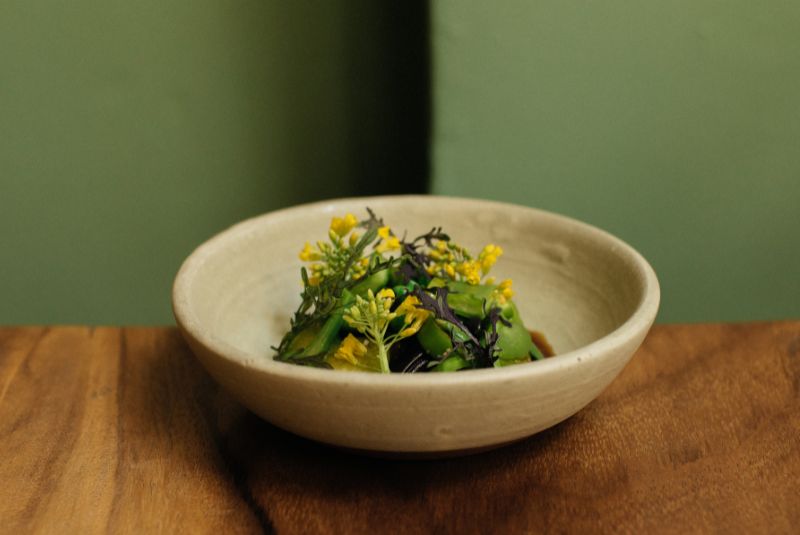
Tomatillo, molasses, eggplant and Ocosingo cheese (image: Maureen Evans)
The experience prompted her to create a scholarship, called Beca Elena Reygadas, that covers the accommodation and living costs for young women who want to study the gastronomic arts, but don’t have the means. Despite having a following of more than 50,000 just on Instagram, the chef didn’t promote this initiative on her social channels, choosing to go directly to the culinary schools to see what impact it would have without the mediatic attention that would inevitably follow a public announcement. Within a month, they received over 300 applications for a handful of scholarships. The chef now plans to grow the initiative as much as she can with the support of external partners.
“In Mexico, we don’t have much of a culture of philanthropy as there is in the United States and Europe – that idea of giving back to society if you have been privileged or lucky and you have done well,” she explains. “But I felt that I had reached a moment in my career where I was no longer a young girl. It was my turn to give something to the new generations, or in this case, to young women in the Mexican countryside who want to study gastronomy but can’t.”
Reygadas had first noticed the lack of women in professional kitchens during her training years, seeing restaurants too often led by male chefs and women relegated to the pastry kitchen. After her first daughter was born, she moved from London back to her native Mexico City with a mission: to become the leader of her own restaurant. After saving some money running a private supper club, she outfitted an old mansion with antique furniture she bought at markets and second-hand sales and opened Rosetta in February 2010, shortly after her second daughter was born.
Thus began Reygadas’ double life – living out the often-competing roles of mother and chef. “In Mexico, women are still the ones in charge of the children and the house. It’s taken for granted,” she says. “For me, that has been the biggest challenge: to be a mother as well as a cook who owns restaurants that open early and close late. I didn’t want my daughters to feel that I was abandoning them because of my work, but I also wanted my work to feel led and supported by me. I felt that I had to divide myself into little pieces to be in both worlds.”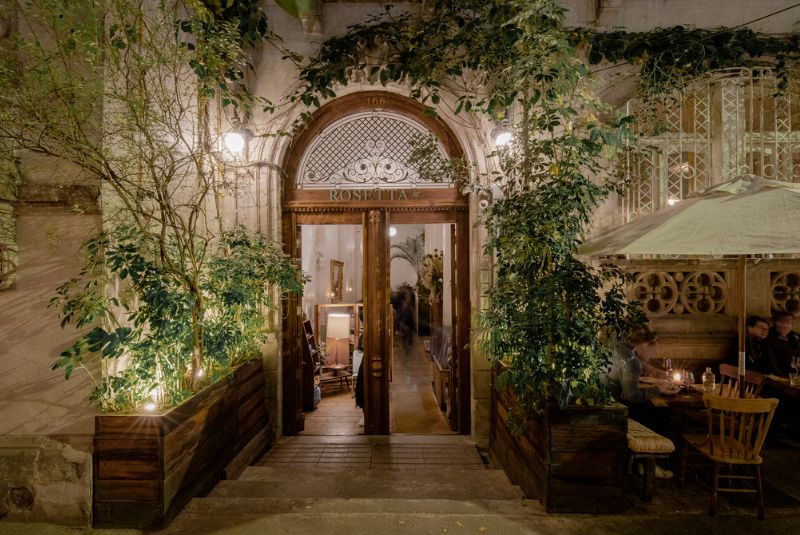
Reygadas filled her restaurant with plants so that it would feel like a welcoming home (image: Maureen Evans)
Today, the chef’s daughters – Lea and Julieta – are teenagers and still the apple of their mother’s eye. They love that Reygadas is a such a recognised figure in the restaurant industry and understand the sacrifices she had to make to run a successful business while also raising a family. Rosetta has gone on to be voted into eight editions of Latin America’s 50 Best Restaurants since 2014, also making its debut into the extended ranking of The World’s 50 Best Restaurants in 2022, landing at No.60.
Stepping into the global spotlight, Reygadas wants to take as much of Mexico as she can with her. She emphasises that what makes her country unique is the co-existence of several cuisines, cultures and even eras. “My home, Mexico City, is a place where many Mexicos coexist. The ancestral Mexico is still here, but there is also a contemporary Mexico. You can see the multiplicity of times and the passage of time in the present, and that is unique,” she emphasises.
“Here, food is not only in the streets and people’s houses, but also in murals and in our culture. Old cultures remain, they haven’t gone away, and there are many things about Mexico that haven’t yet been talked about. I’m a cook in the middle of the world's largest, most complex and most diverse metropolis, which has an incredible richness in its culture and gastronomy. As a chef, I feel that I’m a product of all that.”
Reflecting on her country and the many cultures it holds also brings the chef back to her upcoming accolade. “I want to share this award with the women who cook on a daily basis,” she says. Perhaps unconsciously, she stands a bit straighter and steadies her voice, taking the space she deserves in the room.
“I don’t mean just chefs in professional kitchens. It’s for all the women who cook at home every day and who are also mothers and providers. I want to promote women’s leadership in restaurants. I’ve already started – but there’s more I want to do.”
Elena Reygadas, speaking like a true World’s Best Female Chef.
Meet Chef Reygadas and travel through Mexico City in the video:
The 21st edition of The World’s 50 Best Restaurants list, sponsored by S.Pellegrino & Acqua Panna, will be announced on 20th June 2023 in Valencia. Tune in to the livestream of the awards ceremony on YouTube or Facebook from 20:40 local time. To stay up to date with the news and announcements ahead of the ceremony, browse the website join the community on Instagram, find us on Facebook, visit us on Twitter and subscribe to our YouTube channel.

